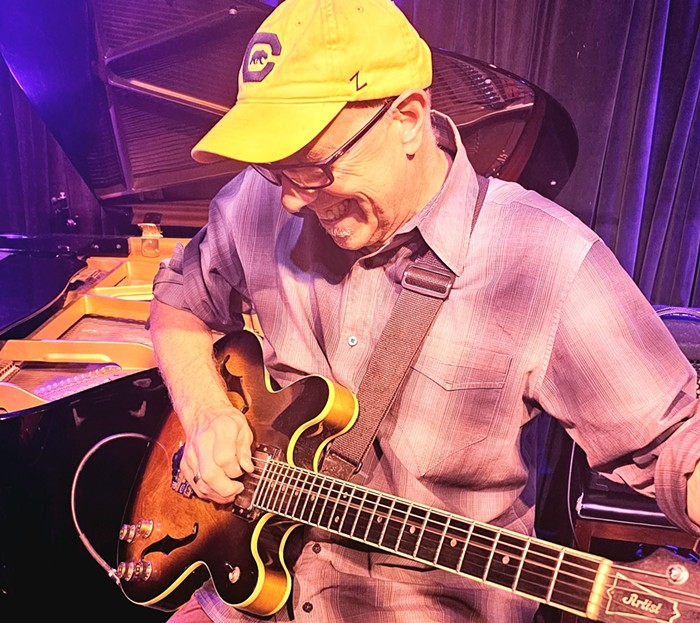In Nick Thorburn's first band, the Unicorns, his songwriting was pulled by twin obsessions: the dream of pop-star immortality and the promise of real, personal death (with a little room for comedy and romance in between). Thorburn's effective debut—following a scarcely circulated, self-released, 500-copy album called Unicorns Are People Too—was the Unicorns' Who Will Cut Our Hair When We're Gone?. On that album, tracks like "Ready to Die," "I Don't Wanna Die," and various numbers about ghosts explored anxieties about death (and possible, but not likely, afterlives) with cartoonish color, while songs like "Child Star" and "Let's Get Known" took an equally skewed, silly look inward at the business of being in a band.
Following the Unicorns' heavily self-foreshadowed dissolution, Thorburn went on to form Islands with Unicorns drummer Jamie Thompson, who has since left the band. Their debut, Return to the Sea, picked up literally where the Unicorns left off: On album opener "Swans (Life after Death)," Thorburn sings, "I woke up thirsty on the day I died," echoing and fulfilling the "Ready to Die" line, "I woke up thirsty on an island in the sea." The album went on to replace the Unicorns' marshmallow ghosts and jelly-boned skeletons with less-caricatured personal reflections and broader apocalyptic visions—human societies hunkering down like rats underground, volcanoes erupting into sudden global climate catastrophes.
Arm's Way is Islands' first album as a real, tour-hardened band rather than a loosely organized studio project, and the solidified sextet sounds more comfortable and confident than ever. The album has a musical cohesion reminiscent of their clearly well-rehearsed, but still breezy live show.
"This record was made by six people," says Thorburn. "As opposed to Return to the Sea, where we had myself and Jamie making a record more as a project than as a band, bringing in friends to lay down impromptu arrangements."
Lyrically, though, Arm's Way takes a sharp turn, leaving behind the promises of pop and the shadow of death (though returning to the scene of a car crash) to explore a fascination with crime and punishment. "Creeper" tells the story of a violent home invasion. The opening track, "The Arm," casts the titular appendage as the punitive reach of the law or fate/death itself. "Life in Jail" asks sincerely, "You sure you want to spend your life in jail?," positing imprisonment, or loss of freedom, as a clear, conscious choice, though not necessarily referring to a literal jail (elsewhere, references to busy bees seem to suggest workaday industrial society as its own kind of prison). "I Feel Evil Creeping In" finds Thorburn admitting, "It was me that committed the felony." "Vertigo (If it's a Crime)" has him hanging for his misdeeds and bemoaning his fate.
On the phone, Thorburn asks if I hate the record. I don't, but it is growing on me more gradually than the last record (Thorburn jokes that his plan is, in fact, for each record to take longer and longer to catch on). Arm's Way isn't Islands' sophomore slump exactly, but it is the sound of the band settling—not as in compromising, but as a house into its foundations. Their confidence and comfort borders on overconfidence. The more common rock arrangements feel too easy. One worries that in bringing the whole band together, something of Thorburn's appealingly weirdo sensibility is being lost.


















